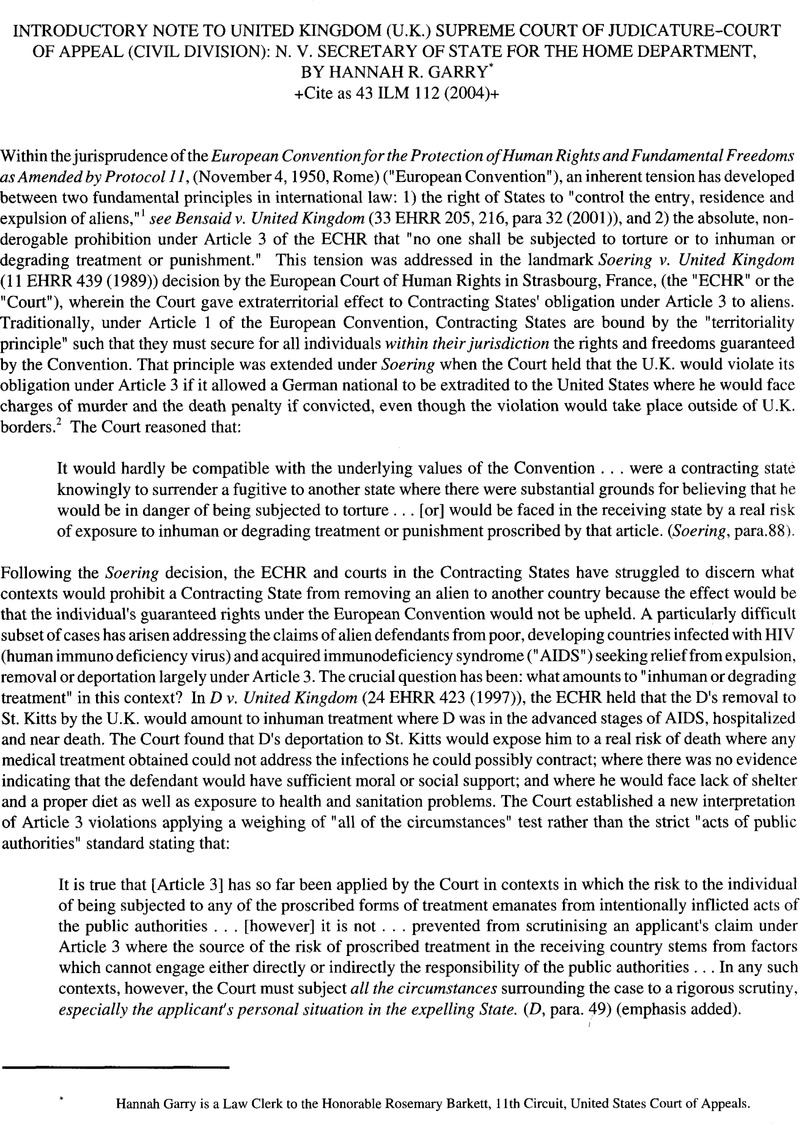Published online by Cambridge University Press: 18 May 2017

1 This principle is reflected in Article 5(l)(f) of the European Convention wherein the right to liberty and security is conditioned as follows:
Everyone has the right to liberty and security of person. No one shall be deprived of his liberty save in the following cases and in accordance with a procedure prescribed by law: ……… the lawful arrest or detention of a person to prevent his effecting an unauthorised entry into the country or of a person against whom action is being taken with a view to deportation or extradition.
2 The ECHR left open the possibility that flagrant violation of the right to a fair trial under Art. 6 might also be grounds for refusing to extradite.
3 In the U.K., see e.g., I v. Secretary of State [1997] IAR 172; AT v. The Secretary of State [2001] IAR 41
4 As pointed out by Lord Justice Carnwath in his dissent, it is questionable whether die D decision was meant to be exceptionally applied as was implied by the JV majority opinion. (N, at para. 51). While the ECHR clearly stated several times that its decision was based upon “exceptional circumstances,” the Court and European Commission have not hesitated to look to D in several subsequent cases to determine whether Article 3 protection for aliens may apply in cases of life threatening illness. See e.g. Bensaid v. U.K. (33 EHRR 205 (2001)); Pretty v. U.K. (Application No. 2346/02 (2002)); Henao v. the Netherlands (Application No. 13669 (2003)).
* This document was reproduced and reformatted from the text appearing at the Court Service Website (visited 1/13/04)<http://www.courtservice.gov.uk>